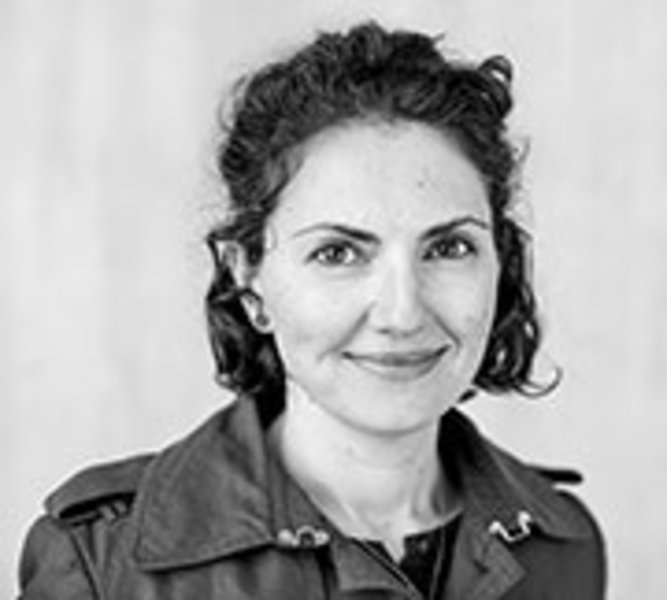On a recent Friday morning in a classroom at San Francisco’s Golden Gate University, 10 women entrepreneurs shuffled to a podium—one after the other—to present their business plans to 10 angel investors, all of whom were also women. The entrepreneurs were vying for a $50,000 investment from the group.
Many of the presenters were first-time entrepreneurs, which was convenient, as many of the audience members were first-time investors.
After each presentation, the investors took turns grilling the entrepreneur on issues concerning her company’s customer acquisition costs, product pipeline structure, management team and market size. This was all part of the due diligence process the investors had been studying for several months as part of the Pipeline Fellowship, a program that aims to expand the pool of women angel investors, and thus, funding for women founders of triple-bottom-line enterprises.
Natalia Oberti Noguera, who hails from the worlds of nonprofit and social entrepreneurship, founded Pipeline in 2011, after running a networking group for women social entrepreneurs who complained about a dearth of capital in the sector. Oberti Noguera thought the solution was to engage high-net-worth women, particularly philanthropic ones, for these risky investments, “because they’re already keen on making the world a better place,” as she put it, and because women are sorely under-represented in angel and VC investing.
“I’m a feminist with a capital ‘F’,” Oberti Noguera proclaimed, pointing out that in 2011, only 12 percent of angel investors were women and merely 4 percent were minorities.
She hopes to change that, and her chances are high, considering that private wealth in the country is expected to grow from some $14 trillion today to $22 trillion by 2020, with at least 50 percent of it in the hands of women.
So far, groups of fellows (10 per cohort) have been assembled in New York, Boston and San Francisco, with a Washington, D.C. group launching in spring. Not only does Oberti Noguera aspire to bring more women into the startup-investing fold, a feat in itself, but she also wants to ensure that the women are diverse in race, age and background.
“We’re interested in these women engaging in peer-to-peer learning,” she said. “And having a range of skills and networks to tap into also adds value to the entrepreneur, that’s why we’re so passionate about diversity.”
Current fellows range in age from 20s to 60s, are multi ethnic, and come from the worlds of art, finance, dentistry, baking, tech and beyond. The fellowship is a six-month commitment, during which participants meet several times a month to learn the art of startup investing from experts in the field. They’re also paired with mentors, many of whom are men.
“The idea behind that is that we want to integrate [our] fellows into already male-dominant networks. We don’t want to create new silos of investors; the program is more about diversifying the networks already out there,” Oberti Noguera told peHUB in June.
A critical part of the program is practice, of course, so about three months into the fellowship, Pipeline invites women social entrepreneurs to submit their business plans for a chance to secure a $50,000 investment ($5,000 from each fellow) from the group.
Out of the applicant pool—40 to 80 deep—the fellows select eight to 10 women to pitch to the group. The pitch event helps winnow the investment prospects to two or three, which continue to undergo a due diligence process resulting in one investee.
Since the fellowship program was founded a year ago, one startup has been funded—an online grants management system—and another will follow in the next several weeks. The San Francisco fellows still have a couple of months of due diligence left and expect to make an investment this spring.
“It’s so hard to determine where to put your money,” said current San Francisco fellow Jenn Viane Riese, who has a diverse background ranging from real estate to nonprofit management, now running her own consulting business focused on triple-bottom-line businesses.
There are many factors involved in choosing the right investment, she explained, like a sound business plan with a clear problem and solution, obviously, but also whether the group clicks with the CEO and whether the CEO can demonstrate a passion for social impact.
For now, the group uses the term “social impact” loosely—as many of the startups at the San Francisco pitch event presented environmental solutions—and don’t have a system in place yet for evaluating and measuring impact, a notorious challenge for all impact investors.
Regardless, evaluating startups as a group makes the process easier and much more stimulating.
“To be able to be with the same nine women for six months is such a value and such an asset,” Viane Riese said. “They [Pipeline] asked us really interesting questions during the interview process, and I think the point was to find women who would mesh well together. They chose wisely with all of us.”
There is great talent on both the investor and investee sides, so the opportunities for collaboration extend well beyond the Pipeline Fellowship. For instance, some standout startups, not selected by the group for an investment, have been able to secure funding or mentorship directly from individual Piepline angels outside of the formal program.
This is precisely the point, says Oberti Noguera: “We want fellows to continue investing after the completion of the Pipeline Fellowship.”
For more impact news and ideas, follow me on Twitter: @kuurlyq.
[Image courtesy of Pipeline Fellowship.]

Lonnie Shekhtman is a Massachusetts-based writer covering sustainable business, food systems, social enterprises and impact investing. Stay in touch by following Lonnie on Twitter: @kuurlyq.














